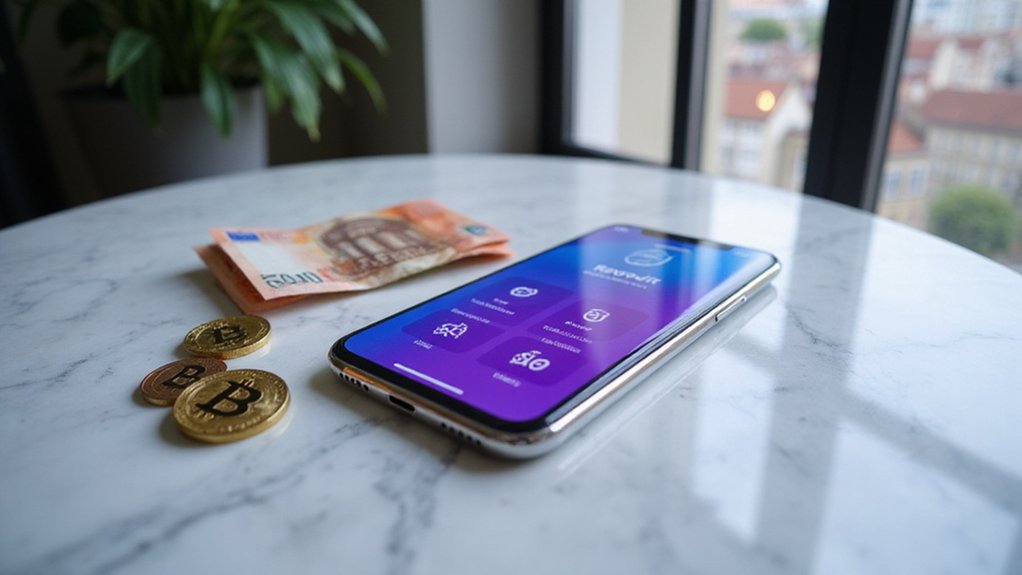PayPal has released what might be the most pragmatic assault on cryptocurrency‘s fundamental usability problem: the yawning chasm between digital asset ownership and actual commerce. Their “Pay with Crypto” service converts over 100 cryptocurrencies—from stalwart Bitcoin to the delightfully named FARTCOIN—into PYUSD, a dollar-pegged stablecoin that merchants receive as actual USD within seconds.
The mechanics reveal PayPal‘s characteristic blend of ambition and pragmatism. Users can spend their crypto holdings at any merchant accepting PayPal without the byzantine process of manual conversion, while businesses receive stable currency rather than volatile digital assets that might crater before morning coffee.
The system integrates both centralized exchanges like Coinbase and decentralized platforms like Uniswap, acknowledging that crypto liquidity exists across multiple ecosystems.
PYUSD itself represents a curious evolution in stablecoin design. Issued by regulated trust company Paxos on both Ethereum and Solana blockchains, it maintains 1:1 dollar parity through reserves of USD deposits and Treasury securities. PayPal sweetens adoption with up to 4% yields for holders maintaining at least $1 on their platform—a modest barrier that nonetheless guarantees some level of commitment beyond pure speculation. The monthly reports from Paxos provide transparency into the reserve assets backing each PYUSD token.
The fee structure displays tactical pricing designed to undercut traditional payment rails. At 0.99% initially (rising to 1.5% for international transactions), PayPal positions itself favorably against credit card processing fees of 1.5% to 3.5%. The promotional rate extends until July 2026, providing businesses with nearly two years of reduced transaction costs.
For merchants operating on razor-thin margins, this differential could prove compelling, particularly for cross-border commerce where traditional fees often multiply like rabbits. Stablecoins already demonstrate their value in cross-border transactions by reducing fees to 1-3% compared to traditional remittance services.
Integration spans major wallets including Coinbase, Binance, Kraken, Phantom, and MetaMask, while PYUSD transfers within PayPal’s ecosystem (including Venmo) carry no fees—a strategic moat encouraging users to remain within their walled garden.
The service targets small businesses specifically, recognizing that crypto adoption often begins at the entrepreneurial edge rather than corporate boardrooms.
Whether this bridges crypto’s commerce gap or merely creates another intermediary layer remains to be seen, but PayPal has crafted a system that acknowledges both cryptocurrency’s potential and its current practical limitations.









